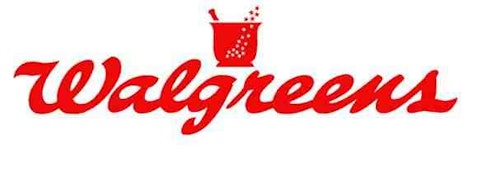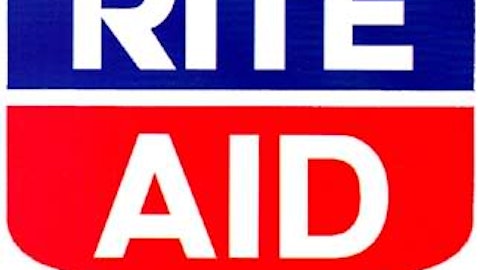Walgreen Company (NYSE:WAG)s became the disaster du jour recently, missing on earnings and losing 7% of its value overnight.
The usual suspects, those who didn’t see the miss coming, immediately downgraded the stock as though that would help traders who were caught out guard.
But note I said traders, not investors.
Walgreen’s strategy makes sense
Walgreen Company (NYSE:WAG) is engaged in a long-term re-invention which, it hopes, will make it a big winner in health reform.
This is driven by two key facts. There’s a growing, and chronic, shortage of general practice physicians. And high-income consumers are increasingly unwilling to wait all day in a waiting room anyway.
The result is a redesign of all its stores built around its Take Care Clinics, staffed by nurses and physicians assistants, linked to doctors through electronic health records and the Internet. The company has managed to get permission to diagnose and treat “chronic conditions” like diabetes through the clinics, and has made deals with countries like Chile to treat their nationals as part of those countries’ health plans.
The strategy goes further, transforming Walgreen Company (NYSE:WAG)’s stores from convenience shopping into lifestyle hubs complete with wine and coffee bars, even massages, so that any wait for care, for diagnosis, or for drugs becomes a joy instead of a chore.
This is a long-term change. In the Atlanta market, for instance, only three of the company’s stores now feature the clinics. The first of the redesigned stores just opened this year in Chicago. We’re talking about a five-year plan that will unfold along with health reform. It’s not political, it merely takes advantage of what politics has wrought, but those who don’t like the politics are bound to be leery of it.
Walgreen Company (NYSE:WAG) put the best face on the news, emphasizing the fact that earnings were $645 million rather than the fact that revenues were up only 3.2% to $18.3 billion. Analysts preferred to harp on its long-term argument with Express Scripts Holding Company (NASDAQ:ESRX), the pharmacy benefit manager which cut it off from its customers for nearly a year over a financial dispute, which was settled last year.
Traders also expressed some distrust of the company, one reporting that someone dropped 12 million shares on the market right before the earnings came out.
The point is these are all tactical points, not strategic ones. The Express Scripts Holding Company (NASDAQ:ESRX) problem is in the rear-view mirror. Any long-term plan is going to go through short-term hiccups.
CVS stands pat
Those who dislike Walgreen Company (NYSE:WAG) may find their ease with CVS Caremark Corporation (NYSE:CVS), the company’s main rival.
While CVS has its own clinic unit, MinuteClinic, the company has kept that group on a short leash, preferring to offer typical “doc in a box” services like wound care, rather than go at the heart of the medical business. CVS Caremark Corporation (NYSE:CVS) stores look today much as they did 30 years ago, with household and beauty items on head-high shelves, along with convenience goods. The idea is that you come in with your prescription and leave within a very short time – there are even drive-up windows.
CVS also has its own pharmacy benefit manager, which competes directly with Express Scripts Holding Company (NASDAQ:ESRX) and is thus closely tied to existing medical practices and business methods. Its most recent earnings report, filed almost two months ago, credited the cold and flu season with a gain in net income from $0.59 per share, $776 million, to $0.77 cents a share or $956 million. This was four cents a share higher than street estimates, and three cents higher than CVS Caremark Corporation (NYSE:CVS)’ own forecast.
As a result CVS Caremark Corporation (NYSE:CVS) shares remained fairly stable and, until the Walgreen Company (NYSE:WAG)’s release, the two companies traded in tandem.


